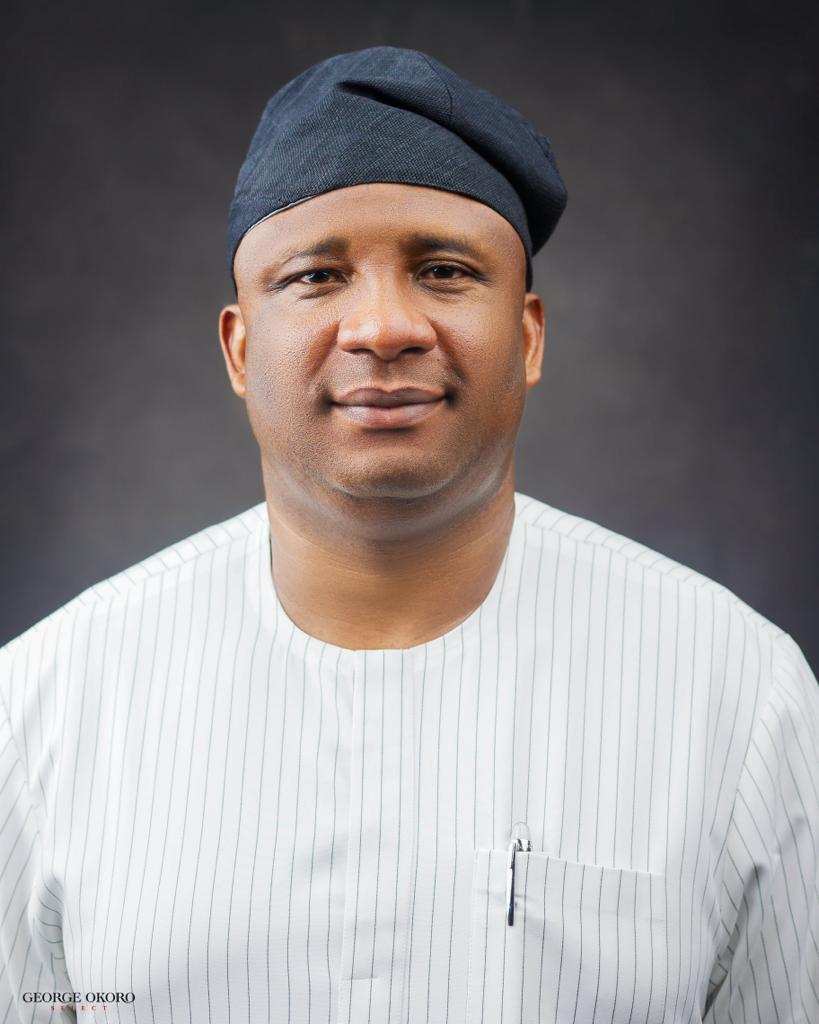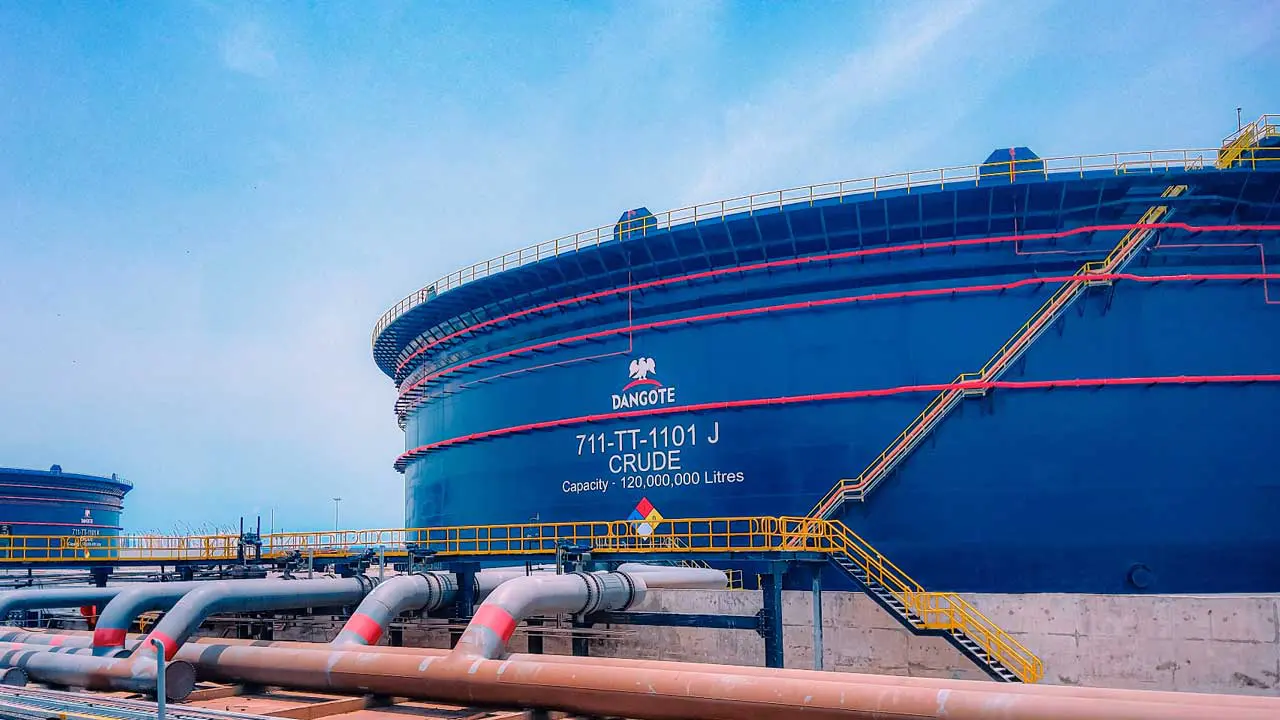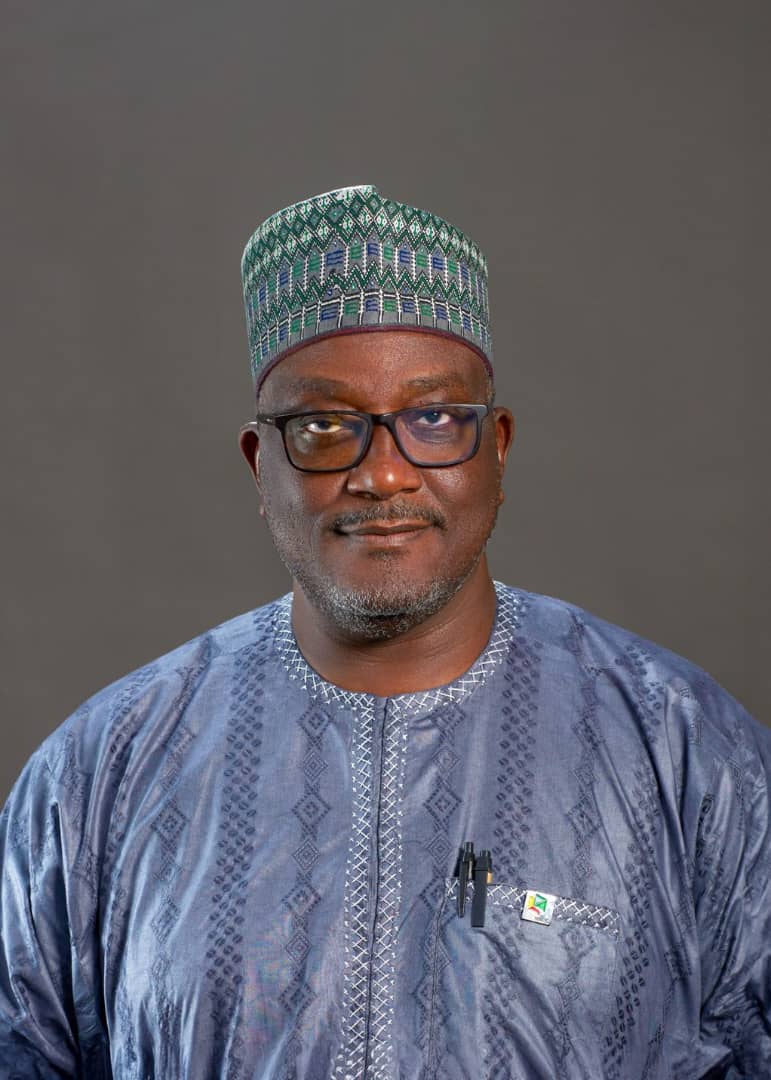By Gabriel Enemona
Charming, religious, unassuming in countenance and vehement when making political points as has become his preoccupation of late, particularly when it comes to the contemporary state of affairs in his home state of Kogi, outdoor advert mogul Idoko Kingsley Ilona is rapidly growing in political stature since emerging as the candidate of the All Progressive Grand Alliance (APGA) for the November 11, 2023 Kogi state Governorship election.

In less than a month, the Kogi state political landscape will be locked in a clash of powers as contenders jostle to replace outgoing governor Yahaya Bello in a race expected to be epic. Epic not only because of the array of gladiators but because it is coming after eight years that power
for the first time, since the founding of the state went to Kogi central and even completed its constitutional term limit, after the abrupt and fortuitous demise of late Prince Abubakar Audu, the strong man of Kogi politics.
Audu who was widely regarded as a competent administrator, whom by merit had carved a niche for himself. His demise came at a time when the power shift forces were totally frustrated and outclassed. The Ebiras and Okuns before then had frantically sought to have a shot at the Lugard house throne. The intrigues that led to the emergence of Governor Bello is now history, but from the persistent agitations and whispers on the street, the Bello administration has not met the expectations of Audu’s 2014 – 2015 political promises.
For the ruling APC, its justification rest on the twin factors of returning power to the youth as typified by Governor Bello and his coterie of loyal cronies, and on the other side, the politics of power retention in the Ebira speaking Kogi Central, from where hails the current Governor and his most loyal lieutenants.
In reaction to the power politics of the day, the opposition parties have also chosen to play the ethnic card as the only way of beating the incumbency power since the Ebira Ethnic group which Governor Bello and Ododo, his annointed candidate both hail from is the third largest, Igala and Okun coming first and second respectively; with Murtala Ajaka, former deputy national publicity secretary of the APC, who is from Kogi east, emerging as the candidate of the Social Democratic Party (SDP) and another champion of Kogi east, the famous Akpabana, that is the former chief of Naval staff, admiral Jibrin Usman, while former law maker Daniel Melaye popularly known as DINO and serving law maker, Leke Abejide of both the PDP and the ADC are also from Kogi West respectively.
The blatant blaring of Ethnic anthems to persuade or re-enforce the prejudices of some people to the exclusion of others as the only means to victory in a necessarily fragmented vote. In this charged atmosphere of hate and divisionism, has emerged the tender and more sterner voice of Idoko Kingsley Ilonah, speaking peace to chaos, brotherhood to fragmentation and hope to despair. This graduate of Geology and mining from the University of Jos and the head of Lona media, Nigeria’s first digital LED outdoor advert campaign company, passionate in his style, has been consistent in his message, charismatic in his delivery much to the praise and acclaim of folks across the political and ethnic divide in a state where most of the leading candidates are either the imposition by the incumbency or the crass display of financial war chest by certain notorious personalities.
Speaking recently about the character of his campaign, Ilonah said’ “Fortunately or unfortunately, I am Igala man but I don’t believe in ethnic politics. I detest religious, regional or sectional politics and I don’t want to be part of it.
“Our leaders that rushed into endorsing candidates were unfair to the people of the state because elections should not be about ethnic agenda; it should be about competence, who will turn around the fortunes of the State.”
Ilonah has traversed the four corners of Kogi state without the usual inter – party violence that greeted other parties campaign trail and seems to be unperturbed by the influence of incumbency which fear to many is the beginning of wisdom in Nigerian politics.
Ilonah noted in a recent interview, that: “In politics, so many things happen. We must not run away from the fact that the majority of these people are going for stomach infrastructure, that is the truth. Stomach infrastructure is one of the reasons you see people cross-carpeting.
“The election is November 11 and as we are getting closer, there will be defecting, recamping and all that. So what is happening now with due respect to those defecting is purely the issue of stomach infrastructure. So we are not worried.
Also speaking recently on his economic vision, Ilonah who promises to raise the state IGR to 25 billion said,’ “We have identified about 55 different companies to be established in Kogi state if God gives us power. We can do these things. When our President Bola Ahmed Tinubu became Lagos state governor, the yearly internally generated revenue of Lagos state was N13 billion.
“But under one year he took it to N69 billion, now we all know what Lagos state is doing every month. That is what we are saying, Kaduna too is doing the same thing. I watched an interview with el-Rufai before he became governor where he said they were generating N800 million , now they are doing N13 billion monthly.“This is a state that is war torn. Since el-Rufai became governor of Kaduna state the only industry that he attracted to Kaduna is Olams and Olams unfortunately because of the war, the banditry and kidnapping the factory have not been able to produce. How did el-Rufai do it, payee. They just automated the payee and started getting the right IGR.
“I believe that I have the best ideas to turn around Kogi State for good. Is it not absurd that you have Lokoja with water where riverports and everything can be created but we have to import things all over into Nigeria and they come through Lagos? We then transport them from Lagos to Lokoja and then you start talking about the northern parts. So Lokoja should serve as the riverport for the northern part of Nigeria. So what we want to do basically is to harness the enormous potentials of Kogi State. Kogi State alone can feed Nigeria. Look at the Ajaokuta steel, I know it’s owned by the federal government but Kogi has the potentials to feed Nigeria.
“We have the capacity to build the largest rice mill in Africa and even the world in Kogi State because we have the land, we have the soil and our soil is one of the best in the country. So I have the best ideas to turn around the infrastructure of the state.
Without doubt the state apparatus is solidly behind the annointed candidate on Governor Yahaya Bello, that is Alhaji Usman Ododo of the APC, but popular sentiment seems to be shifting fast and faster as the days go by, and the message of hope of Idoko Ilonah seems to have been gaining traction and more traction among the masses. While the major political parties and their politically established candidates may have the established structures but like Peter Obi of the Labour party in the 2023 general election, Ilonah and the Labour party are adamant that their gospel is resonating with the common man who constitute the bulk of the voting masses.
If the election climate remains relatively fair and balance, then anything is possible, especially an upset, with Chief Idoko Kingsley Ilonah as one man to watch out for.





